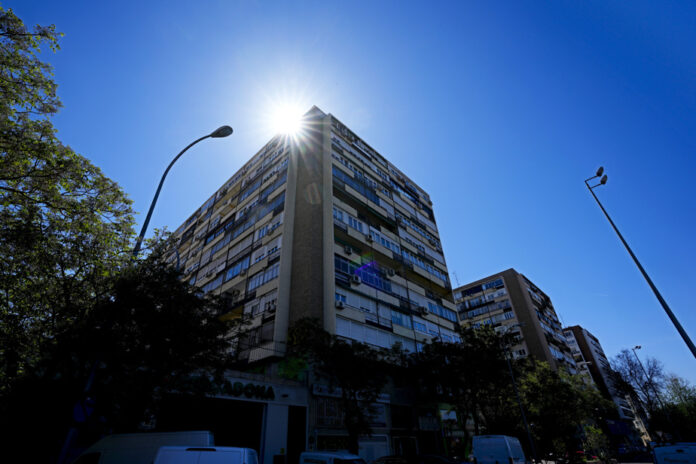(Madrid) High summer in April: already hit by a catastrophic drought, Spain will experience an exceptional heat wave this week, with peaks expected at 40°C, further signs of accelerating global warming .
Linked to the arrival of a “mass of very hot and dry air of African origin”, it will result in “unusually high temperatures for this time of year”, announced in a press release the agency. Spanish meteorological (AEMET).
According to the public institute, temperatures will exceed 30°C on Tuesday and Wednesday in a large part of the south of the country, with possible peaks of 35°C – or “summer values” – in Andalusia (South) and in the regions of Valencia and Murcia (South-East).
They will then continue their progression to reach “generally 35°C” on Thursday and Friday in the southern half of the country and the Ebro Valley (North-East), and even “40°C” in the Guadalquivir Valley, in the heart of Andalusia.
These temperatures will be “6 to 10 ° C” higher on average than normal for the season, specifies the AEMET. But in some places, they will even be “15 to 20 degrees” above normal values at the end of April, agency spokesman Ruben del Campo said on Twitter.
This heat wave comes as Spain is experiencing an abnormally hot and dry spring, particularly in Catalonia (North-East), facing its worst drought in decades, and where the authorities have already issued orders to reduce water use.
Due to the lack of rainfall, reservoirs — which store rainwater so it can be used in drier months — are at just a quarter of their capacity in this region, according to local authorities. And many farmers have had to give up their seedlings in recent weeks.
“We are in a difficult moment hydrologically,” especially as groundwater and reservoirs in Spain have been damaged in recent years by a chronic lack of rainfall, the Minister of Agriculture acknowledged last week. Luis Planas.
In a press release, the Asaja agricultural employers’ confederation also sounded the alarm. “The intensity of this drought is terrible” and leads to a “chaotic” situation, with heavy losses to be expected for grain and oilseed crops, she said.
According to Coag, the main farmers’ union, 60% of Spanish agricultural land is currently “choked” by the lack of rainfall. “Irreversible damage has been done to more than 3.5 million hectares of grain,” he worries.
According to AEMET, this early heat wave, coupled with sustained wind and very low humidity, will increase the risk of fires over the next few days, as firefighters have already fought several large forest fires since the end of March.
According to the European Forest Fire Information System (EFFIS), Spain is already on a record for burned areas since the start of the year, with 54,000 hectares affected as of April 23, compared to 17,126 hectares. on the same date in 2022, a record year for fires.
A European country on the front line of climate change, with nearly 75% of its territory in the process of desertification according to the UN, Spain experienced its hottest year on record last year, with several scorching heat waves , according to the AEMET.
This phenomenon, linked according to experts to the acceleration of global warming, has put the question of water at the forefront of the political scene in recent days in the country, against the backdrop of the electoral campaign for the regional elections at the end of May and the legislative elections scheduled for the end of the year.
Spain must “review” the way it manages this “increasingly scarce good”, Socialist Prime Minister Pedro Sanchez stressed last week, when 80% of the country’s water is currently used by the agriculture, in particular for fruit and vegetables intended for export.


















